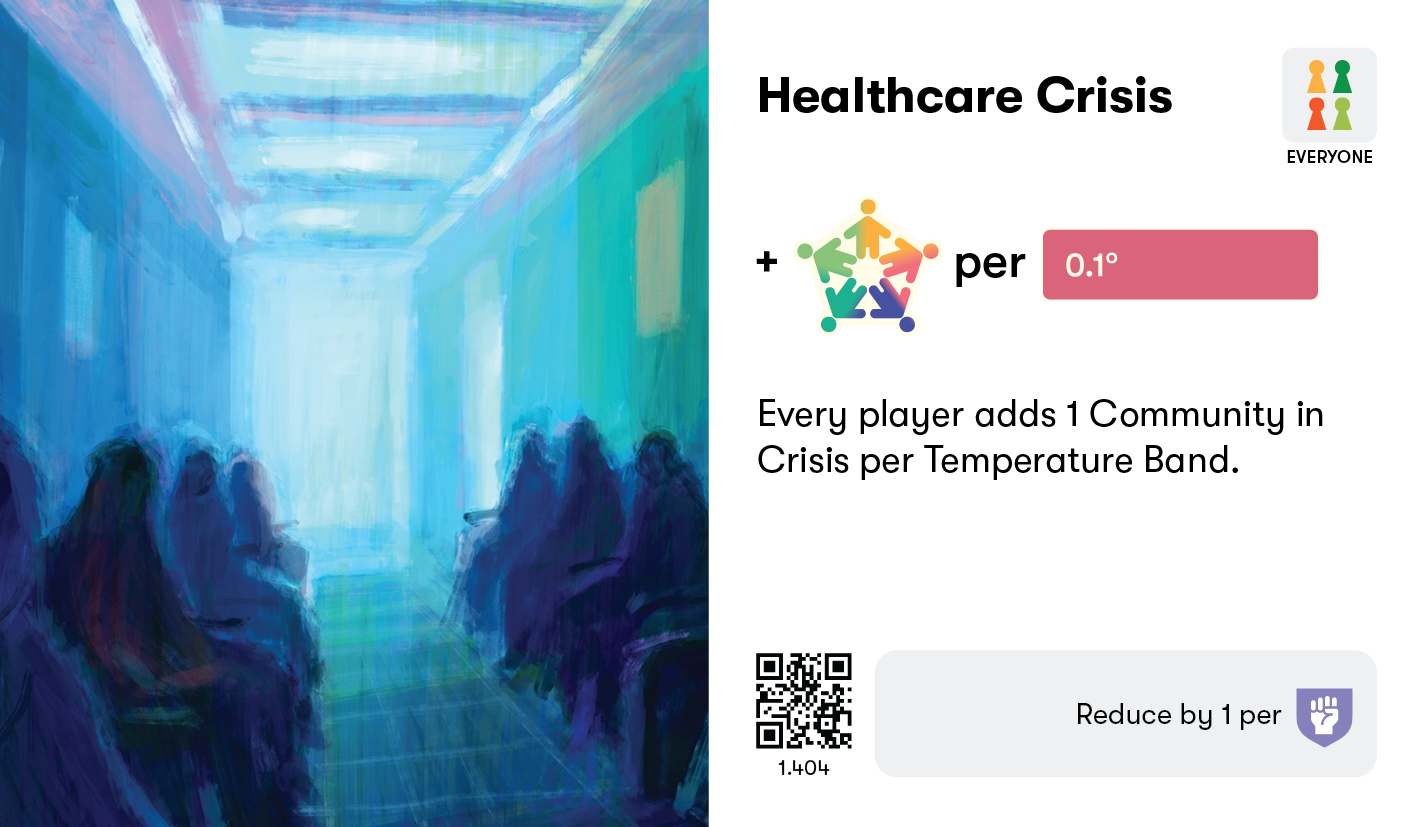Healthcare Crisis
Crisis
A healthcare crisis happens when the health system’s ability to provide adequate care breaks down. It is multi-dimensional, affecting both the type and severity of health issues, demand for healthcare and the provision of healthcare. It may cover mental health risks, infectious disease spread or operational issues.
The climate crisis is the single biggest health threat facing humanity. Heatwaves, air pollution, extreme weather events and climate-sensitive diseases are just some of the climate-linked causes of health issues. A healthcare crisis will affect everyone all around the world in different ways, but some people are more vulnerable than others: mostly older people, young children, and pregnant women.
The more greenhouse gasses are emitted and the more the Earth warms, the worse the healthcare crisis will become due to increased demands and costs. Additionally, a lack of climate-health adaptation and research will also increase the level of crisis.
Many healthcare systems suffer ongoing problems. Many are underfunded or heavily privatized, with profits extracted to private companies. The COVID-19 pandemic demonstrated that few are ready for major epidemics and crises. Most healthcare systems are reactive and rooted in hospital care, rather than community-oriented and preventative.
Long-term greenhouse gas emissions reduction policies to eliminate fossil fuels will reduce the risk of a significant healthcare crisis. Other factors that could make this crisis less severe are a transition to more plant-based diets, air quality improvement and emergency preparedness.
Every player must add 1 Community in Crisis per Temperature Band.
Players can reduce this effect by 1 for each Social Resilience token in their player board.
For example: 5 Temperature Bands – 3 Social Resilience = add 2 Communities in Crisis.
Resilience tokens are not discarded.

Climate change and health (World Health Organization, WHO)
Countdown on health and climate change: health at the mercy of fossil fuels (Lancet)
Climate Change and Health Seminar: Attribution of Health Impacts to Climate Change (Yale Center on Climate Change and Health)
Support political change to reduce harmful emissions and make healthcare institutions more climate-smart, community-lead and preventative.
Take individual actions for health improvement such as eating more plant-based, exercising more and upgrading indoor spaces to protect air quality - and campaign for your government and healthcare providers to support people to do these activities easily, inclusively and affordably.
Support and take part in community-based public health actions and campaigns.